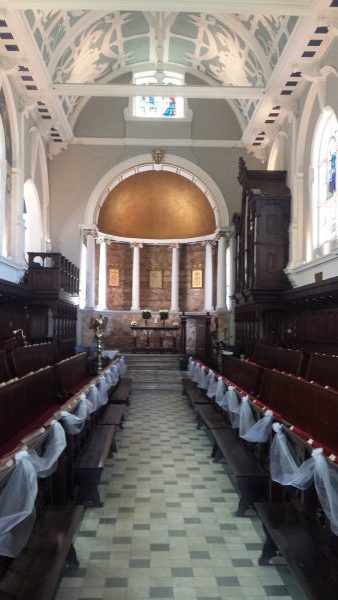The religious wedding is undeniably in decline, but still has a place for many. Sometimes, it is the couple’s choice; on occasion, outside influences (such as family pressure) may dictate the decision.
Whatever the reason, marriage in places of worship accounts for fewer than 20% of all ceremonies conducted in England & Wales. (Incidentally, same-sex marriage accounted for less than 1% of these ceremonies.)
More couples are choosing to live together, rather than marry. This doesn’t fully explain the significant drop in those opting for the fully religious marriage. Church-going in general is definitely declining, though.
One reason for the fall in popularity of religious services is rigidity. There is little room for flexibility or variance. The standard service has to be followed. The liturgy rules. It is not personal to the couple.
(That’s not a criticism – this suits many people, after all, and the service can still be very beautiful.)
It is, of course, possible to find a compromise. If you use a civil celebrant, then you may be able to mix the religious and the spiritual, and come out with a unique and meaningful ceremony.
The celebrant-led service may well be an option for precisely the reasons already stated, but may also work for those whom the Church refuses to marry. (Catholic divorcees or those wanting mixed marriages, for example.)
One other potential advantage of having a celebrant-led ceremony is that you have choice of venue. Lovely as a church is, it may not offer the desired atmosphere or location. Why not choose wherever you want to marry as your venue?
Ultimately, it’s a matter of personal conviction as well as choice, but you really can have what you actually want for your big day.
I would be happy to have a chat with you, if this has set you thinking!

